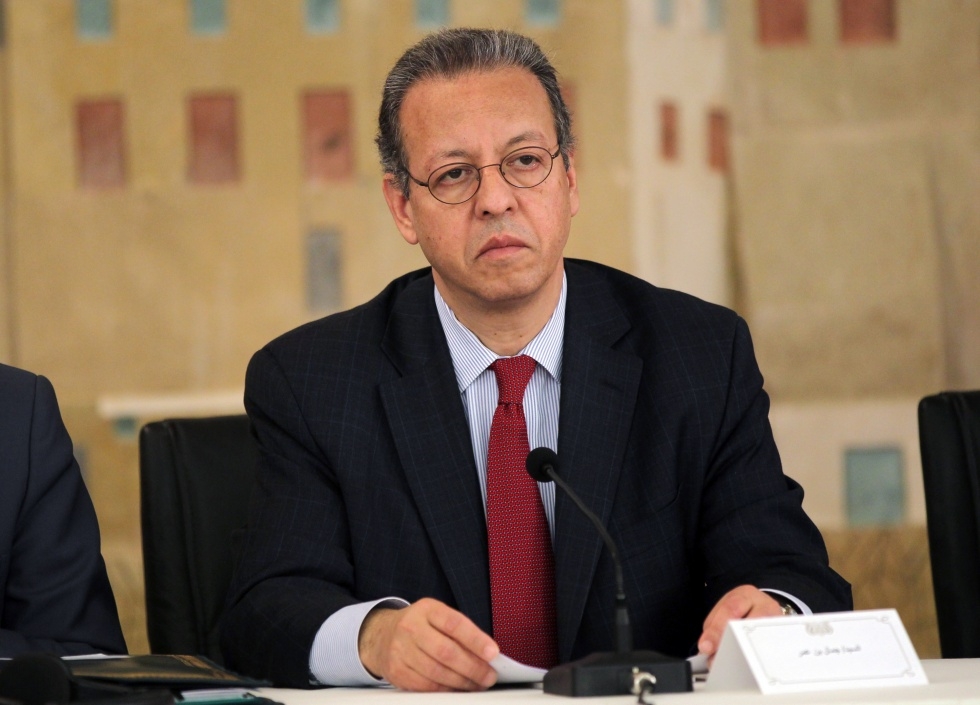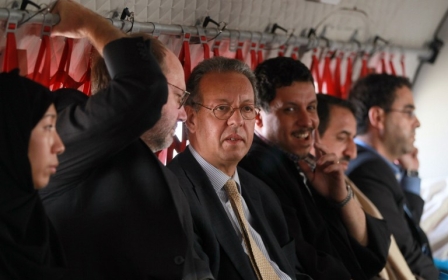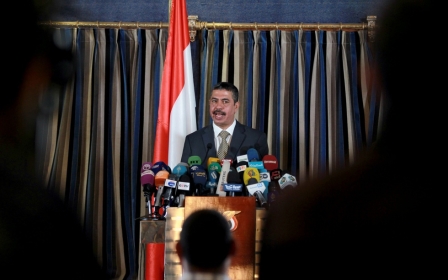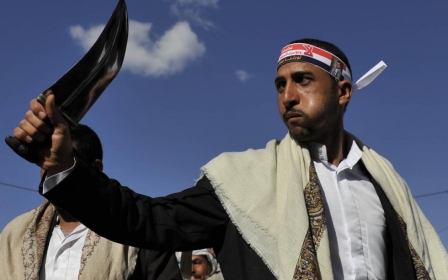Jamal Benomar: former political prisoner turned peace builder

“It wasn’t a legal form of arrest. I just ‘disappeared’, and that night I was tortured from midnight to 5 o’clock in the morning. They used the classical methods: binding the hands and feet of my naked body to an iron bar and whipping the soles of my feet while forcing my head back in a bucket of excrement.”
These were the words of Jamal Benomar in a September 1986 interview with the New Internationalist. Benomar, best known as the UN envoy to Yemen who was appointed to the position by secretary-general Ban Ki-moon in August 2012, spent eight years in prison in Casablanca for his political activism.
He was arrested at the age of 19 when he was a student at the University of Rabat in January 1976 for being part of a radical organisation that tried to initiate political debates on the issues of development in Islam, socialism and Marxism.
For his tormentors though, as they revelled in his arrest and drank whisky in intervals between sessions of torture, he was accused of wanting to ruin the entire country.
“You want to destroy our traditions, our monarchy and our nation - you people in the opposition are all Marxists and atheists” was what they told him.
Several prisoners went on hunger strike in order to draw attention to their plight and to demand a fair trial. The minimum sentence was five years. After one female prisoner, an English teacher, died on the 40th day of her hunger strike, the human rights organisation Amnesty International decided to campaign for the release of Morocco’s political prisoners.
Benomar described the Moroccan government as being “very sensitive” to European opinion, and said that prison conditions gradually improved. After his release in 1983, he decided to leave the country as the government repression was still rife. In February 1985, he left Morocco to complete his doctorate at the University of London.
While there he worked with Amnesty International for five years in London, becoming the organisation's Africa specialist and team leader in the research department. After joining the United Nations in 1994, his career progressed through the United Nations Development Programme (UNDP) and the UN Department of Political Affairs (DPA).
Peace-building featured heavily in his career. He was the human rights programme director of the Carter Centre at Emory University in Georgia in the 1990s, and worked with former US president Jimmy Carter on human rights, conflict resolution and intermediation matters.
While working for the UNDP, he focused on governance and peace building in conflict countries, and in 2006 helped to establish the UN Peace Building Commission, an intergovernmental advisory body that supports peace efforts in countries emerging from conflict.
Resignation follows loss of Saudi support
Benomar resigned from his role as Yemen’s UN envoy on 15 April after efforts to bring in the opposing political factions of the impoverished country to start a political dialogue were severely undermined by the Saudi-led airstrikes against the advancing Houthi militia that began on 26 March.
According to AFP, Benomar had lost the support of Gulf countries for his peacekeeping endeavours.
Yemen’s popular protests against former president Ali Abdullah Saleh in 2011, the year of the Arab uprisings, resulted in Saleh stepping down in a managed transition that saw the election of Abd Rabbuh Mansour Hadi. However, unrest and political strife continued and in September 2014 the Houthi militia from the country's north overran the capital Sanaa, dissolved parliament and placed Hadi and his associates under house arrest.
“This is [the only country] in the context of the Arab Spring that had a peaceful transition and an inclusive national dialogue,” Benomar told CNN following his resignation announcement. “There were prospects for peace and now this transition is in disarray.”
Hadi, who is now in Saudi Arabia after fleeing from Sanaa to Aden in February, told the UN that he would no longer participate in talks mediated by Benomar.
Since the airstrikes by the Saudi coalition began, over 700 people have been killed, 2,700 injured, and over 120,000 displaced.
A spokesperson for the UN released a statement praising Benomar for his efforts in Yemen.
“Mr Benomar has spent the past four years working closely with the Yemenis to realise their legitimate aspirations for democratic change fulfilled,” the statement read. “The secretary-general greatly appreciates the tireless efforts Mr Benomar has made over the years to promote consensus and trust on a peaceful way forward in Yemen.”
New MEE newsletter: Jerusalem Dispatch
Sign up to get the latest insights and analysis on Israel-Palestine, alongside Turkey Unpacked and other MEE newsletters
Middle East Eye delivers independent and unrivalled coverage and analysis of the Middle East, North Africa and beyond. To learn more about republishing this content and the associated fees, please fill out this form. More about MEE can be found here.




